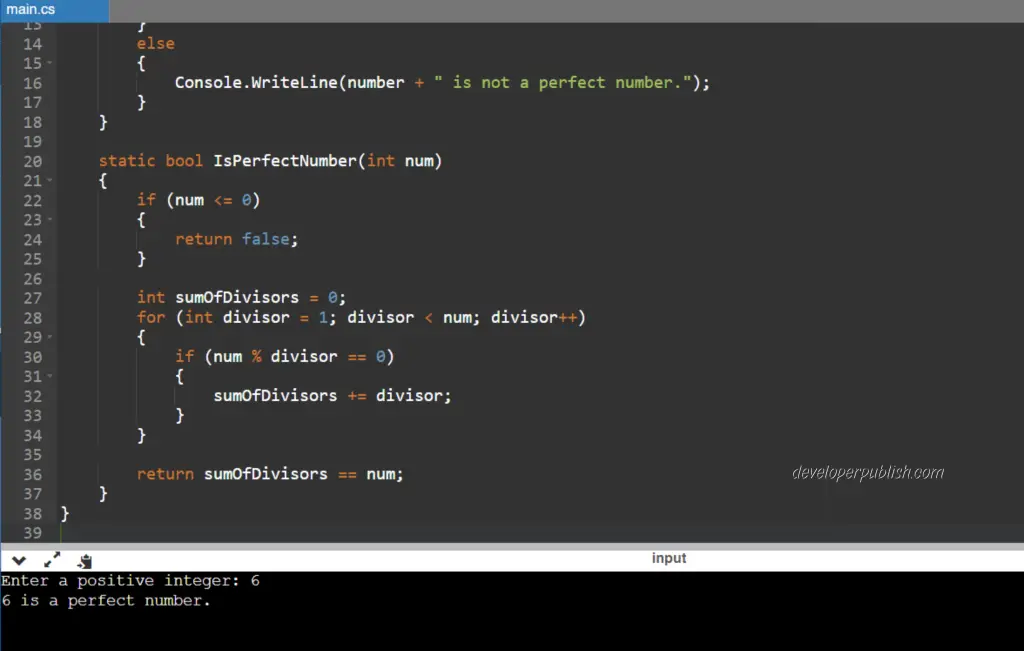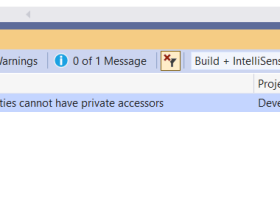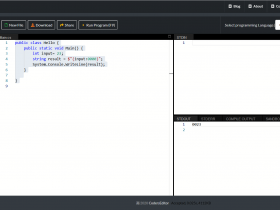C# Program to Check Whether a Given Number is Perfect Number
In this example, we will create a C# program to determine whether a given number is a perfect number, demonstrating the language’s ability to handle mathematical operations and conditional checks.
Problem Statement
Write a C# program to check whether a given positive integer is a perfect number. A perfect number is a positive integer that is equal to the sum of its proper divisors (excluding itself). For example, 28 is a perfect number because the sum of its divisors (1, 2, 4, 7, 14) is equal to 28.
C# Program to Check Whether a Given Number is Perfect Number
using System;
class Program
{
static void Main()
{
Console.Write("Enter a positive integer: ");
int number = Convert.ToInt32(Console.ReadLine());
if (IsPerfectNumber(number))
{
Console.WriteLine(number + " is a perfect number.");
}
else
{
Console.WriteLine(number + " is not a perfect number.");
}
}
static bool IsPerfectNumber(int num)
{
if (num <= 0)
{
return false;
}
int sumOfDivisors = 0;
for (int divisor = 1; divisor < num; divisor++)
{
if (num % divisor == 0)
{
sumOfDivisors += divisor;
}
}
return sumOfDivisors == num;
}
}
Input / Output






Leave a Review